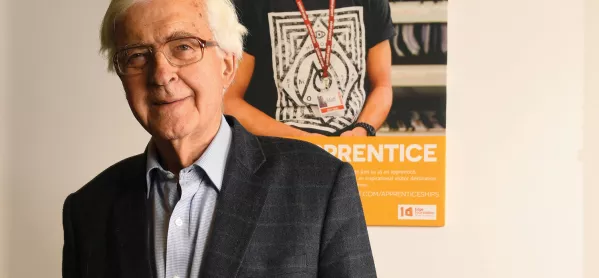Businesses expect their new employees to be numerate, because whatever the business does they will be involved with figures every day one way or another. However, too many employers discover that although their employees have GCSE maths, it doesn’t mean they are numerate in a practical sense.
At the weekend I sometimes go into a small bakery to buy a loaf, a couple of Danishes and some fruit tarts. Some of the assistants can add up the bill quickly, but others have to write the prices down and slowly add up the total. These are not uneducated young people, but they have not had enough focus in school on becoming numerate. So I think it is time to examine the content of GCSE maths and give a greater proportion of time to numeracy by splitting the qualification into two: “core maths” and “further maths”.
“Core Maths” should start with the four rules - addition, subtraction, multiplication and division, and go on to cover decimals, fractions, percentages, time, speed, distance, area and volume. But it should also include money, loans, debts, interest - compound and ordinary - wages, taxes, student fees and basic statistics. This will equip students with the skills they will need in the real world.
When I learned about percentages in my primary school, I just thought it was a simple way of understanding proportions. I worked for a short time in a retail company where I learned that the percentage rate on the return of sales was crucial to its survival and that we had to get a 30 per cent return, which required a 50 per cent increase in the purchase cost - this was the company’s gross margin. I spent a lot of time calculating percentages as they could vary according to the volume of sales.
Numeracy skills for the workplace
“Further maths” would involve algebra, geometry, trigonometry, and calculus. These subjects are important to some areas of business, but not to all. As I have a rather crossword-puzzle sort of mind, I rather liked doing quadratic equations, but I have never ever found the need to do one since I left school.
Splitting the maths GCSE may seem unique, but English has two examinations - language and literature - and science can have three, two or one. For those who are ready, the core GCSE could be taken at the age of 13 and 14, with students taking “further maths” at 16. Those who do not do too well at “further maths” would have still have clear evidence of the numeracy that will allow them to participate fully in everyday life.
I hope this proposal will open up a debate for I was the minister who introduced GCSEs and I never thought they would be set in stone forever. It is now time for a change.
Lord Kenneth Baker is a former Conservative education secretary
This week’s Tes magazine features a major investigation into the impact of the reformed GCSEs and A levels. To read the full analysis, please subscribe.



